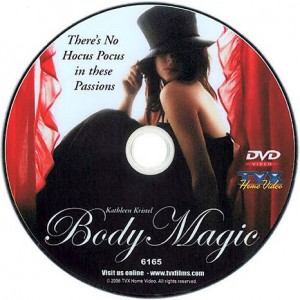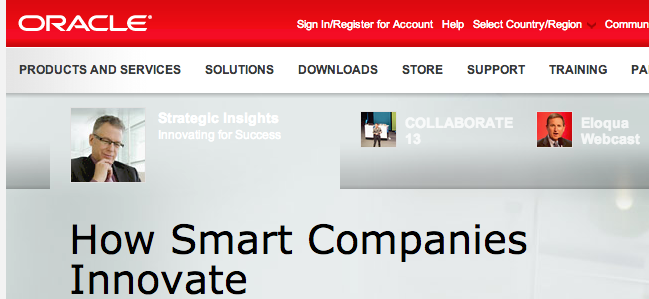10 Years of PT: 2010 – New Difficulties
 Note: This post is part of an ongoing series, you can read the other posts here.
Note: This post is part of an ongoing series, you can read the other posts here.
For me personally, 2010 was a very rough year. I remember it best not as a year of great copyright stories and speaking engagements, but of financial difficulties and missed opportunities. Some of the challenges from this year linger to this day.
However, as I look back on the stories that happened and were told on this site, it was truly an amazing year to be a reader of the blog. Not only did some of the biggest and most memorable stories of PT’s history happen in 2010, but it was also the year the post format was finalized and the theme became more or less stable.
In short, while this feels, to me, like a year of setbacks, it was also a year of great personal and professional growth. So while it’s difficult for me to think of it fondly, I certainly think fondly about all that was achieved during the year.
Copyright and Plagiarism in 2010
 2010 was the year of three very big headline-grabbing copyright decisions. The first was the Google/Viacom ruling, which found that YouTube did not violate the law during its early days even though it new there was copyright infringing material on the site. The court ruled that, since YouTube was not aware of specific infringements and removed content when notified, they were protected by safe harbor.
2010 was the year of three very big headline-grabbing copyright decisions. The first was the Google/Viacom ruling, which found that YouTube did not violate the law during its early days even though it new there was copyright infringing material on the site. The court ruled that, since YouTube was not aware of specific infringements and removed content when notified, they were protected by safe harbor.
The second was dealt with a clash of the titans as Oracle won a $1.3 billion judgment against competitor SAP over the latter’s TomorrowNow division. TomorrowNow was set up to provide service and support to Oracle products but Oracle sued claiming the group was illegally downloading and using Oracle content. SAP admitted as such but the two sides couldn’t agree on damages leading to a trial and the judgment.
The amount was eventually reduced to $356 million, which ended up being where the case settled.
Finally, LimeWire was hit with a summary judgment in its case against the record labels. It was the first major lawsuit against a file sharing company since Grokster and the court ruled that LimeWire had induced copyright infringement and could be held liable for the infringements that took place over its service.
LimeWire was eventually hit with an injunction that barred it from operating. Though a trial on damages was started, the case ended with a $105 million out of court settlement.
In other copyright news from the year, the U.S. Copyright Office legalized phone jailbreaking in the United States, which would be undone and redone in the years after. Also in 2010, Immigrations and Customers Enforcement (ICE) would begin its campaign of domain seizures of sites engaged in copyright and trademark infringement.
But, for copyright news, 2010 in some ways may best be remembered as the year of the copyright trolls. Righthaven, US Copyright Group and ACS:Law were all active in 2010, bringing a lot of focus to the idea of using mass lawsuits to fight piracy and the ethics of these campaigns. Righthaven in particular, which represented newspapers in filing lawsuits against websites with copied content, drew controversy.
On the plagiarism side of things, it was a bit more quiet this year with the focus falling heavily on the Nick Simmons plagiarism scandal, which saw Simmons, who is the son of KISS frontman Gene Simmons, face allegations of plagiarism in his comic book series Incarnate, which resulted in the series being halted.
Former President George W. Bush was also accused of plagiarism in his memoir Decision Points, though the allegations didn’t really have much impact because they dealt with quotes people allegedly said to him during his time as President.
All in all, it was a very wild year for copyright and plagiarism, but it was even a more wild one behind the scenes.
Most Popular Post
Once again, using the same standard we have in other editions of this series, looking at the past 90 days of site traffic. The most popular post on Plagiarism Today from 2010 is also the second most popular post on the site itself: 5 Easy Ways to Get Sued on Facebook
However, if we look at the top five posts. Three of them are from 2010. Trademark, Copyright and Logos is not far behind and The Messy World of Fan Art and Copyright is also in the top five.
I think the year was such a cornerstone of the site because it was the year I finalized the format of the posts (headers, images, etc.) and I wrote a lot of “evergreen” content rather than topical work.
Still, the main lesson from 2010 seems to be, if you want people to share you on Facebook, write about Facebook.
Behind the Scenes
 Behind the scenes, a lot went wrong. Early in the new year the company that owned CopyByte when I joined it decided that they no longer wanted to be in the content protection business. The move was very sudden, shifting from actively making long term plans to being terminated in a matter of a week.
Behind the scenes, a lot went wrong. Early in the new year the company that owned CopyByte when I joined it decided that they no longer wanted to be in the content protection business. The move was very sudden, shifting from actively making long term plans to being terminated in a matter of a week.
While I wouldn’t what happened if I knew (both out of respect and due to non-discloure agreements), the truth is I don’t. To this day, I don’t know why the decision was made. Everything seemed to be going very well up until the last minute and the decision caught me completely off guard.
The worst part was that, to sign on to CopyByte, I had abandoned all of my consulting practice that I had built up. The sudden ending of the position left me with no income and a desperate race to get back on my feet, this time though, with CopyByte as the brand name.
Unfortunately, it was a race I largely lost. Rebuilding turned out to be much more difficult than building it the first time. Financial difficulties were the story of the year and they forced me to not attend the Fourth International Plagiarism Conference as there was simply no way I could afford it.
I did attend and speak at OpenCamp Dallas, the successor to WordCamp Dallas, but that was later in the year and significantly closer to home.
But while things were difficult at home, the site had a banner year. Just some of the bigger bullet points include:
- Global Grind: In April Patrick O’Keefe let me know about Global Grind, a hip-hop news site that was scraping blogs and republishing them to Google News. The company quickly stopped the practice after we reached out to the company and began to apply public pressure.
- Cooks Source: Cooks Source was a small magazine that specialized in Western New England Food. A blogger, Monica Gaudio, noticed one of her articles reprinted in there and the publication claimed her work was “public domain” when they used it. The case blew up both online and in mainstream media. Cooks Source eventually apologized, but the publication folded not long after the story broke.
- Lara Jade: Though Lara Jade is now known as a well-respected fashion photographer, in 2010 she was awarded a $130,000 judgment against Robert Burge and TVX Films who used a self-portrait she took when she was just 14 on the cover of a pornographic DVD. The case started out as a community controversy in deviantArt but quickly became a lawsuit. After the judgment was announced, I reached out to her and her attorney, getting the full recap of the case linked in the bullet header.
- WordPress/Thesis: The WordPress community divided in July as the makers of the paid Thesis theme framework refused to adopt the Gnu Public License (GPL) despite many in the community saying it was required since it works with WordPress, which is GPL software. Thesis backed down and adopted the GPL, but these days non-GPL themes are fairly commonplace.
- Nostalgia Critic/Tommy Wiseau: Finally, in a story that is dear to my bad movie loving heart, representatives of Tommy Wiseau, the mind behind the cult classic The Room, filed a DMCA takedown notice against Doug Walker, better known as The Nostalgia Critic. Walker had done a review of The Room in his usual long-review format. Wiseau and his representatives felt the review crossed the line to infringement and ordered it removed. Though the review came down, it resulted in a firestorm of controversy directed at Wiseau and his film.
All in all, it was a very busy year for Plagiarism Today and one that produced a lot of the site’s best-loved content. So, in spite of the personal hardships, it turned out to be a great year for the blog.
Bottom Line
Looking back, 2010 was something of a paradox, an extremely difficult time personally masked by an excellent run for the site.
But that’s kind of been the nature of the site in many ways. During my toughest times, I’ve thrown myself headlong into Plagiarism Today and to making it great. It’s not just a coping mechanism, but also how I try to improve my own life and, for the most part, it’s worked.
But, even at its worst, it was far from all doom and gloom on the site. In July I took a challenge from a good friend and produced a comedy YouTube video about plagiarism but, perhaps more fittingly, when it came time to close the year out, I wrapped it up my own copyright-oriented parody of The Night Before Christmas, which remains one of my personal favorite posts today.
Just proof that, even in the doom and gloom of copyright, there’s always room for some humor.
Want to Reuse or Republish this Content?
If you want to feature this article in your site, classroom or elsewhere, just let us know! We usually grant permission within 24 hours.
